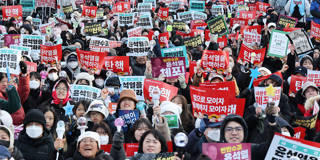
South Korea’s Constitution Needs Fixing
South Korea's latest political crisis is further evidence that the 1987 constitution has outlived its usefulness. To facilitate better governance and bolster policy stability, the country must establish a new political framework that includes stronger checks on the president and fosters genuine power-sharing.
SEOUL – The events that have unfolded in South Korea this month, beginning with President Yoon Suk-yeol’s short-lived declaration of martial law on December 3, have underscored both the remarkable resilience and underlying fragility of the country’s democracy. The system survived this time, but no democracy is safe if it constantly faces severe stress tests.